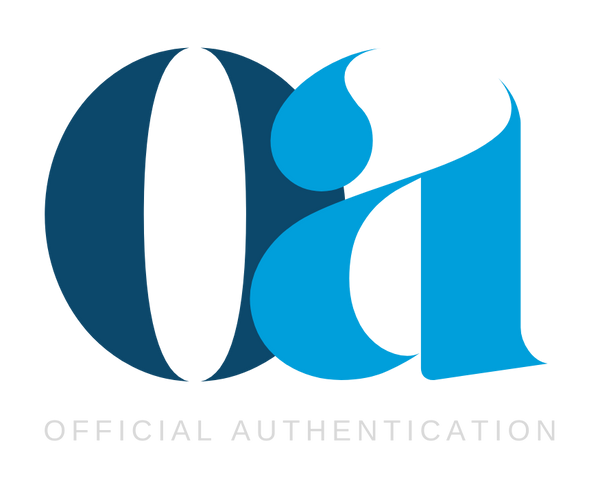Counterfeit luxury goods are more than just a legal or economic issue—they’re a psychological phenomenon that reflects deeper societal and emotional motivations. While the luxury industry focuses on combating counterfeits with cutting-edge technology and meticulous verification processes, understanding why people buy fake luxury goods is equally important. By exploring the psychology behind counterfeit consumption, we can uncover insights that help brands, authenticators, and consumers navigate this complex landscape.
Why Do People Buy Counterfeit Luxury Goods?
The decision to purchase counterfeit luxury items isn’t always about affordability—it’s often rooted in psychological and social factors. Here are some of the key drivers:
1.The Desire for Social Status

Luxury goods are powerful symbols of success, wealth, and sophistication. For many consumers, owning a designer handbag or watch is less about the item itself and more about what it represents. Counterfeit goods offer an accessible way for people to project an image of affluence without paying premium prices.
This is especially true in societies where social status is closely tied to material possessions. A fake designer bag can act as a “shortcut” to belonging in certain social circles, even if it lacks the quality and craftsmanship of the original.
2. Peer Pressure and Social Influence

In today’s hyper-connected world, social media platforms like Instagram and TikTok amplify the pressure to own luxury items. Influencers flaunting high-end brands create aspirational lifestyles that many followers want to emulate. For those who can’t afford authentic products, counterfeits become an attractive alternative.
Additionally, peer pressure within friend groups or professional environments can push individuals toward purchasing fakes to “fit in” or keep up appearances.
3. Cognitive Dissonance and Justification

Many buyers of counterfeit goods experience cognitive dissonance—a psychological conflict between their actions (buying a fake) and their values (supporting ethical practices). To resolve this discomfort, they rationalize their decision by downplaying the importance of authenticity or criticizing luxury brands for their high prices.
Common justifications include:
-
“It looks just like the real thing; no one will know.”
-
“Luxury brands are overpriced anyway.”
-
“I’m not hurting anyone by buying this.”
This mental gymnastics allows consumers to enjoy the perceived benefits of owning a luxury item without fully confronting the ethical implications.
The Impact on Luxury Brands and Consumers
The rise of counterfeit goods doesn’t just hurt luxury brands financially—it also has far-reaching consequences for consumer trust and market dynamics.
1. Financial Losses for Brands
Counterfeit goods siphon billions of dollars from the global economy each year, with luxury brands bearing a significant portion of these losses. Every fake item sold represents revenue that could have gone toward legitimate businesses, stifling innovation and craftsmanship.
2. Damage to Brand Reputation
When counterfeit products flood the market, they dilute the exclusivity and prestige that define luxury brands. Worse still, poorly made fakes can tarnish a brand’s image if consumers mistakenly associate subpar quality with the original product.
3. Erosion of Consumer Trust
The prevalence of counterfeits creates uncertainty for buyers—especially in resale markets—making them hesitant to invest in high-end items. This distrust can deter potential customers from purchasing authentic goods altogether.
How Authentication Services Can Address Counterfeit Psychology
To combat counterfeiting effectively, authentication services must go beyond verifying products—they need to address the psychological motivations behind counterfeit purchases through education and engagement.
1. Educating Consumers About Craftsmanship
Luxury goods are more than just status symbols; they’re works of art crafted with precision and care. By highlighting the meticulous processes behind authentic items—such as hand-stitching techniques or ethically sourced materials—brands can help consumers appreciate their true value.
2. Promoting Ethical Awareness
Many buyers overlook the broader consequences of counterfeiting, such as funding illegal activities or exploiting underpaid laborers in unsafe conditions. Authentication services can run campaigns that educate consumers about these issues, encouraging them to make more responsible purchasing decisions.
3. Making Authentication Accessible
Empowering consumers with easy-to-use authentication tools—like QR codes linked to digital certificates or AI-powered apps—can reduce reliance on guesswork when verifying items. This builds trust in both new and pre-owned markets while discouraging counterfeit purchases.
Turning Awareness Into Action
Addressing counterfeit psychology requires a multi-faceted approach that combines education, technology, and engagement:
-
Storytelling Campaigns: Share real-life stories about how counterfeiting affects artisans, workers, and even buyers who end up disappointed with poor-quality fakes.
-
Interactive Content: Create quizzes or guides that teach consumers how to spot counterfeits while emphasizing why authenticity matters.
-
Customer Testimonials: Highlight positive experiences from customers who’ve used authentication services to verify their purchases successfully.
By fostering awareness and trust, authentication services can reshape consumer attitudes toward counterfeit goods while reinforcing the value of genuine luxury items.
Final Thoughts: Building Trust Through Education
Understanding why people buy counterfeit luxury goods is key to addressing this global challenge effectively. By tackling the underlying psychological motivations—whether it’s the desire for status or cognitive dissonance—brands and authenticators can create meaningful connections with consumers while promoting ethical practices.
In 2025, authenticity isn’t just about verifying products; it’s about building trust through transparency, education, and innovation. Together, we can ensure that luxury remains synonymous with integrity—and that every purchase tells an authentic story worth celebrating.

